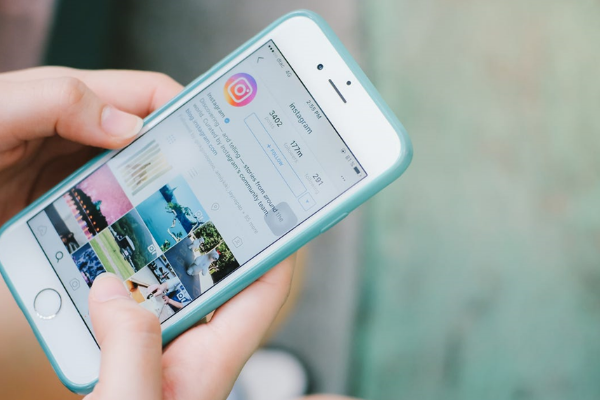Is life online quashing perennial social anxiety?
Remember… what it used to feel like to sit at home and mindlessly sofa-scroll through snapshots of other people’s eventful lives? You’d see holidays to exotic places; Instagram stars wearing enviable outfits; glamourous couples going out for extravagant meals; engagements; weddings; parties, the lot. Perhaps you’d be inspired to make similar plans, or maybe you’d just feel dampened about the fact you’re doing nothing worth photographing.
But now… people are sitting on their sofas by necessity. FOMO, or “fear of missing out”, has been swiftly replaced by the fear of going out, thanks to widespread concern over the spread of coronavirus. ‘Sanitize don’t fraternize’ is the rule of thumb, and social gatherings, like the infamous Derby Dinner Party, incite widespread public shaming. Instead people are embracing Netflix marathons, reading weighty non-fiction books and baking sourdough, whilst quietly revelling in the fact that everyone is missing out on public socialisation. So on the surface it would seem as if ‘FOMO’ as we know it has become another victim of the virus.
Or does FOMO now just manifest itself in smaller, more inconsequential ways? Perhaps you found it creeping up on you when your friends had a ‘Houseparty’ without you; perhaps you haven’t been tagged in one of those Instagram Story challenges that require you to draw a picture of a carrot or run 5km. There is a certain pressure to do everything and be everywhere (virtually of course), because what possible excuse could you have?! And alongside these viral challenges and banana bread baking sessions, people are using Instagram Stories to fiercely document their virtual socialisation in place of pictures of them and their friends at the pub. These are all valid FOMO triggers, so does this mean we are all hardwired to feel some degree of anxiety about our social activity and presence, even when strict regulations have been imposed the very act of socialising?
However you see it, coronavirus has fundamentally changed the way we use social media. The likes of Houseparty, Facebook, Instagram Twitter etc. are now indispensable under the ‘new normal’. They are filling the void of physical interaction and keeping us connected in this otherwise disconnected world.
So what are the implications for life online after the virus subsides?
Users will learn to use social media (more) intuitively: PCV (pre-coronavirus), there was no doubt that ‘ego’ was social media’s middle name, but now users are embracing the likes of Instagram and Facebook to actively engage and connect with friends, family and followers. I’m not saying we’ve seen the end of mindless sofa-scrolling and narcissistic posting, but let’s hope this more harmonious and mature use of social media outlives coronavirus.
Social media platforms will better their services: Twitter and Facebook have been muttering for years about fixing their services to improve the negative impact they have on mental health, but thus far the steps they’ve taken have fallen short. However, this public health disaster exposes how valuable social media can be when it is used to foster genuine social connection, rather than being weaponised to build social status. Facebook and Twitter should read these signals and harness the bubbling sense of community to build healthier versions of their products in the future.
Community builders will be richly rewarded: We will emerge out of ‘All This’ knowing who we turned to online, be it influencers, brands or social groups, to feel inspired during the crisis. Those that wielded social media to creative positivity and build supportive communities will see a return in investment, as followers flock back to get a real piece of the pie once life is taken offline. By the same token, the brands and influencers who have lacked sensitivity through irresponsible advertising, or felt unnecessarily ‘preachy’, will suffer in the long run.
For more information or suggestions, contact amber.williams@thevalueengineers.com


